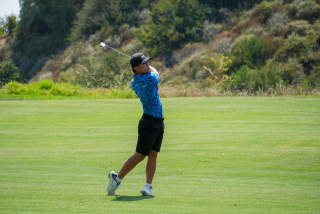Savvy Youths Can Earn ‘Extra Credit’ and Self-Esteem
- Share via
Tennis shoes as collateral?
In the banking world it would never fly, but in the realm of the fledgling South Central People’s Federal Credit Union Youth Program, it could be enough to get a loan.
Since February, about 100 young people have paid between $7 and $15 to join the program that aims at putting lending decisions in the hands of youngsters and teen-agers.
The program is still in its organizational stage, but once it’s up and running, young people 17 and under will operate and make decisions for their own credit union, funded through their own deposits.
The youths will sit on a board of directors and set loan policy and interest rates. The program even envisions its own after-school and weekend office hours with teller windows and customer service desks.
“I want to learn how to manage my money so I don’t go broke once I get to college,” said 13-year-old Aisha Marigna, who plans to run for president of the program’s board of directors “basically because I like to run things.”
Organizers said they hope the program will teach young people responsible money management and build self-esteem.
“It also gets them thinking about what they can do to improve the community,” said the Rev. Barbara Williams, one of 27 adult volunteer advisers.
Another adviser, Twayne Wilson, sits in on committee meetings, mostly keeping hands-off unless tempers flare. “We don’t want them bickering during the meeting,” he said.
The Ralph M. Parsons Foundation awarded a grant for the South Central People’s program, which is the 15th youth credit union in the country and, organizers say, the only one in Southern California.
So far the program has assembled nine committees in charge of such areas as lending, marketing and special projects.
The next step is a coordinated marketing effort to entice youth in the neighborhood to join. Ideas range from passing out visors and stuffed animals bearing the credit union’s name to holding presentations on the program at schools and churches.
As for using tennis shoes as collateral, program director Adwoa Nyamekye said she would have no objection to such a possibility.
“The children can do what they want,” she said. “The advisers will help them think through decisions, but what we want them to do is make their own mistakes and learn to correct them.”
More to Read
Sign up for Essential California
The most important California stories and recommendations in your inbox every morning.
You may occasionally receive promotional content from the Los Angeles Times.










